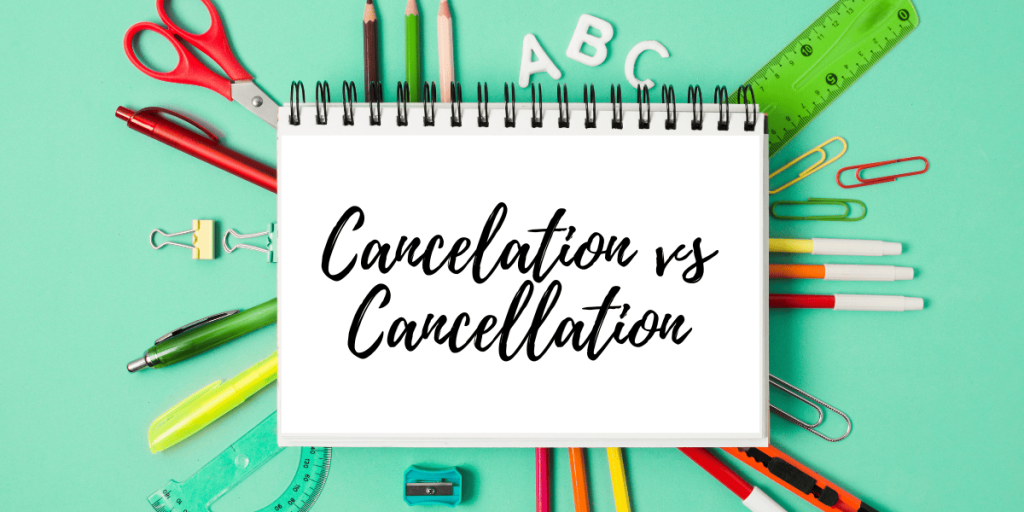Cancelation vs Cancellation: What’s the Difference and How to Use Them Correctly?

“Cancelation” and “cancellation” sound exactly the same, but one is much more commonly used. These two words are a classic example of homophones — words that sound alike but differ in spelling or usage.
In this post, you'll learn the difference between “cancelation” and “cancellation,” when to use each one, and how spelling preferences vary depending on region. Plus, we’ll test your understanding with a quick quiz!
What Does “Cancelation” Mean?
“Cancelation” is a less common spelling of “cancellation,” mostly seen in American English. It refers to the act of canceling something, like a meeting, trip, or event. Though correct, it’s rarely used in published or formal writing.
Examples:
- “Due to the storm, the airline announced the cancelation of several flights.”
- “We received an email confirming the cancelation of our appointment.”
What Does “Cancellation” Mean?
“Cancellation” is the most widely accepted and standard spelling in both American and British English. It means the same as “cancelation,” but it’s far more common and preferred in formal, academic, and business contexts.
Examples:
- “The cancellation of the event disappointed many fans.”
- “Late cancellation fees may apply.”
Key Differences: Cancelation vs Cancellation
| Word | Type | Meaning | Usage |
|---|---|---|---|
| Cancelation | Noun | The act of canceling something | Rare in American English; not used in British English |
| Cancellation | Noun | The act of canceling something | Standard in both American and British English |
Common Mistakes
- 🟥 Using cancelation in formal British English (it’s not used at all).
- 🟡 Thinking one is incorrect — both are correct, but cancellation is the accepted standard.
- 📝 Mixing the two spellings in one text — be consistent!
Easy Tricks to Remember
- 🇺🇸 “Cancelation” = Rare American spelling.
- 🇬🇧 “Cancellation” = Standard everywhere.
- 🧠 Tip: Think of “nation” at the end — “cancellation” matches other common nouns like “vacation” or “station.”
Quick Practice Exercise
Choose the correct spelling in each sentence:
Bonus Resources
- More English Homophones → Browse the full category
- Coming soon: interactive games to master common spelling differences!
Conclusion
“Cancelation” and “cancellation” may sound the same, but one is clearly the preferred spelling. Stick with “cancellation” for formal and everyday writing to stay grammatically correct and regionally accepted.
📲 Now that you know the difference, take the quiz, explore more homophones, and boost your English skills!
Frequently Asked Questions (FAQs)
Yes, they sound the same but differ in spelling. “Cancellation” is the standard form, while “cancelation” is a rare alternative.
No, it's not incorrect, but it's rarely used. “Cancellation” is preferred in all types of writing.
Use “cancellation.” It’s universally recognized in both American and British English.

Leave a Reply